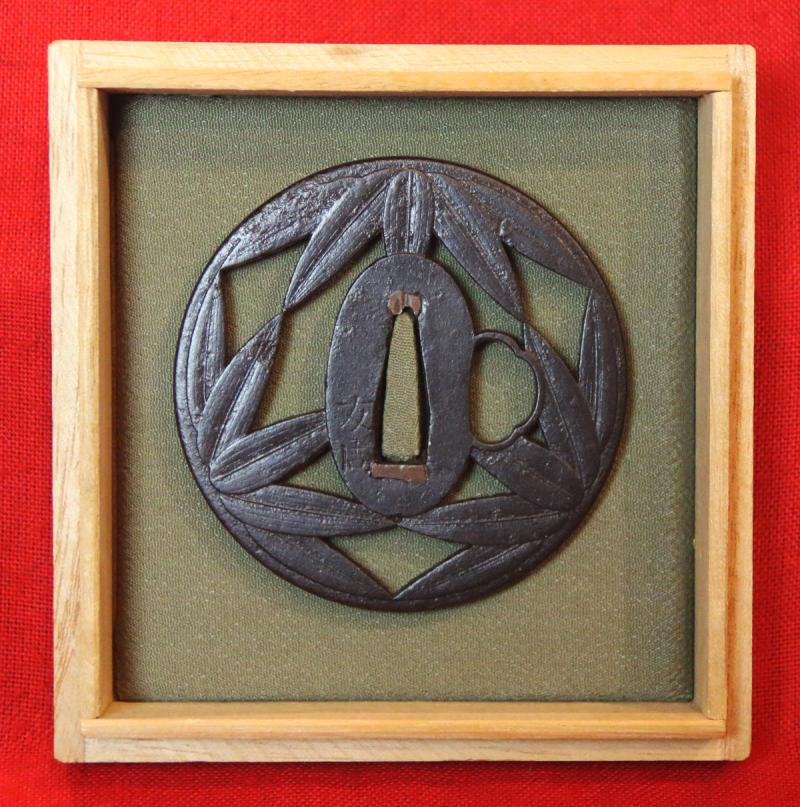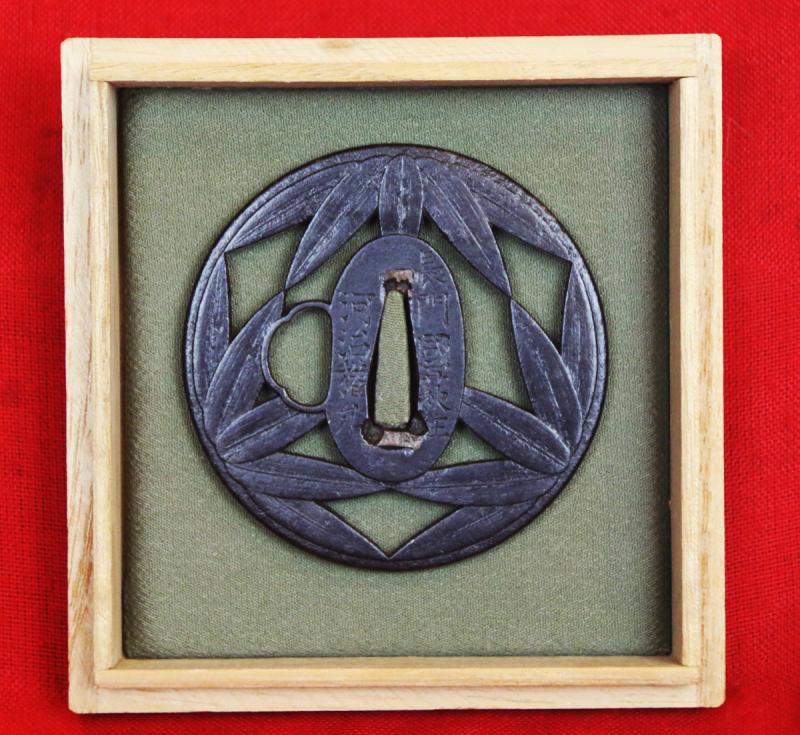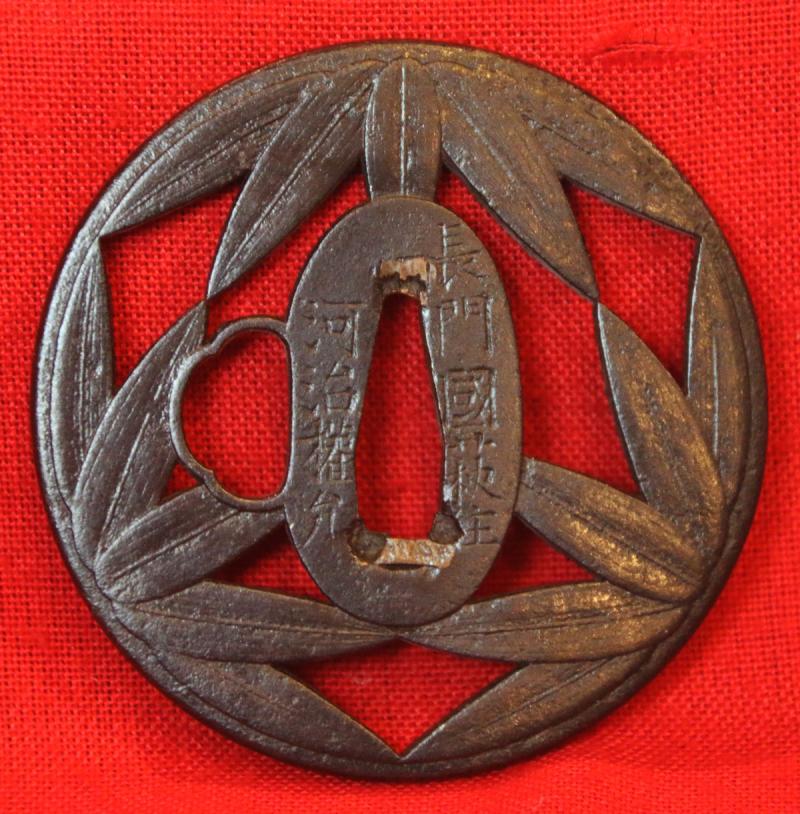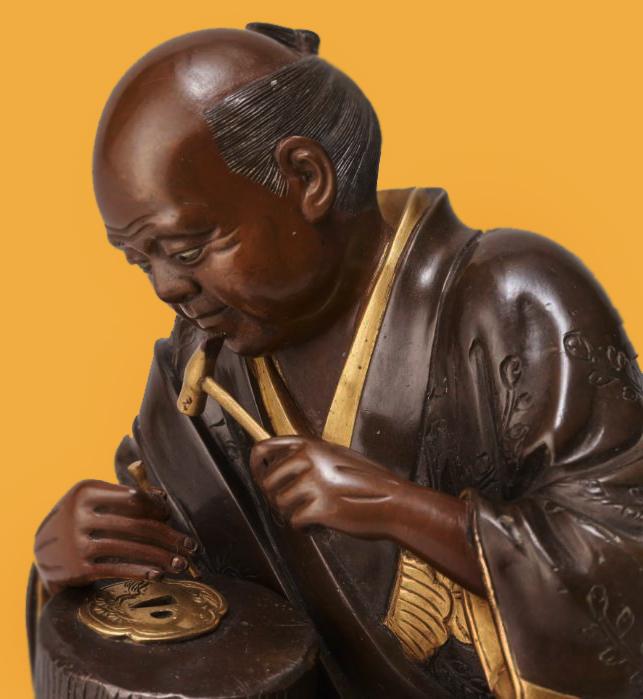Superb Tsuba Signed Choshu Koku Hagi ju Kawaji Go {no} Ju Tomochika. A Retainer of The Mori Daimyo
The westerly province of Chōshū (Nagato) was the home of eight or more important families engaged in making sword-furniture, of whom the parent was the Nakai group, originally established in the neighbouring province of Suō. The indication “of Hagi” (Hagi no jū), so frequently added to the signatures on Chōshū work, may not perhaps in all cases imply the artist’s actual residence at the Nagato capital.
The early work was influenced by Umetada Miōju (Group XI), who spent some time at the Suō capital, Yamaguchi, as well as by members of the Shōami group (XII); thus, examples by the Nakai often show incrustation of the softer metals on the iron ground. Chōshū guards are usually in iron of a rich black patina, with sharp, powerful and carefully modelled relief, either solid or perforated. There may be a sparing enrichment of gold, but this is unusual.
After the Tokugawa family had reconstituted Japan’s central government in 1603, the head of the Mōri family became the daimyo, or feudal lord, of Chōshū, the han (fief) that encompassed most of the western Honshu region. Although the Tokugawa tolerated the existence of the Mōri in Chōshū, the two clans remained hostile toward each other. Chōshū warriors played the leading role in the overthrow of the Tokugawa government in 1867, after which Chōshū men dominated the new government until the end of World War II. Nevertheless, throughout the Tokugawa period (1603–1867) the Mōri family indoctrinated their warriors with hatred of the Tokugawa family and respect for the emperor, whose power the Tokugawa usurped. When Chōshū warriors led the fight to overthrow the Tokugawa in 1867, they did so under the banner of restoring power to the emperor.
74mm
Code: 25489
995.00 GBP




